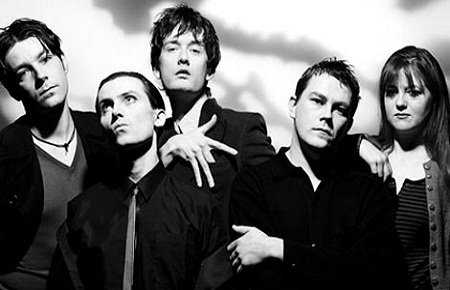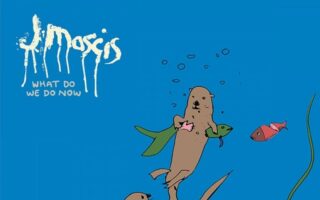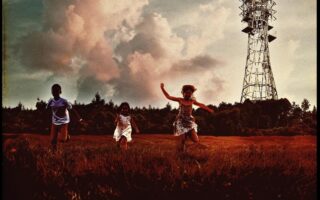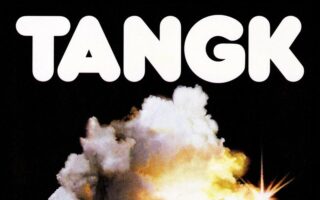Walking on to a festival site for the first time on its last day is a strange experience; not too dissimilar to that Simpsons episode in which Homer emerges from a bomb shelter having unwittingly missed a nuclear explosion.
You wander through a barren wasteland, aware that something epic has happened in your absence but now only presented with an eerie mid-morning calm. A thick layer of half dried mud underfoot tells the story of previous heavy downpours, and the lingering smell of smoke and barbecued meat in the air offers traces of missed 3am camp fires. As the morning progresses, the number of bleary-eyed revellers emerging into the arena area starts to grow, as does the conspicuous feeling of having enjoyed the luxury of a warm shower just a couple of hours ago.
It’s 11am on the Sunday of the 2011 Leeds Festival, and after visits from headliners Muse and My Chemical Romance on the previous two nights, Pulp are due for a little promotion this evening when they make a long awaited return to their Yorkshire roots.
We all have a moment in musical history that we’d give anything to have witnessed – The Beatles at Shea Stadium maybe; Woodstock is another popular one, as is The Who at Isle Of Wight 1970. Possibly even the Sex Pistols’ era-defining gig to a half-empty room inside Manchester’s Lesser Free Trade Hall one summer’s evening in 1976. Maybe you watch grainy footage of it, looking on in envy at those lucky enough to be present, wondering what other events informed that particular day, wondering what the day’s atmosphere was like, what the acoustics were like, above all what it felt to experience that moment in all its glorious reality.
For this particular writer, Pulp’s 1995 Glastonbury headline appearance is one such moment. Brought in at short notice to replace the gradually imploding Stone Roses, and riding high on the back of that seminal hit ‘Common People’, Pulp proceeded to treat Glastonbury to one of its all time memorable performances, launching tracks that would go on to comprise the bulk of ‘Different Class’ with a sublime confidence, and in doing so confirming their incredible rise to success after a decade of toil.

Yet when Pulp ceased to be in 2002 (thanks more to a quiet dissolution rather than a messy split), it seemed the chance to witness Jarvis and co. in a festival setting, to soak up some of the magic which made that 1995 performance so special, had slipped away forever. Subsequently, many rumours of reunion had come and gone before cheeky hints at a return earlier this year were turned into reality.
So now that chance does present itself; the chance to catch a glimpse of a band with genuine festival pedigree in action and, if we’re lucky, to be in attendance as another defining chapter is written.
Before then, a Main Stage line-up boasting one of the US’ finest exports, as well as some of the best under-the-radar bands around at the moment, scattered liberally around Leeds’ numerous other tents, offers more than enough opportunities for Pulp’s thunder to be stolen.
 Around midday, She Keeps Bees swelled an almost deserted Festival Republic Stage to a more than respectable number by the end of an excellent display of their stripped back blues. The Brooklyn band, officially a duo but expanded to a trio for the majority of today’s set, are a perfect option for early lunchtime on the Sunday of a festival; very little sticks around for more than three minutes and all are packed with chord-led, groove-heavy hooks which comfortably retain attention without too much effort.
Around midday, She Keeps Bees swelled an almost deserted Festival Republic Stage to a more than respectable number by the end of an excellent display of their stripped back blues. The Brooklyn band, officially a duo but expanded to a trio for the majority of today’s set, are a perfect option for early lunchtime on the Sunday of a festival; very little sticks around for more than three minutes and all are packed with chord-led, groove-heavy hooks which comfortably retain attention without too much effort.
The slow pace of tracks such as ‘Farmer’ fittingly sound like a trudge through mud and call to mind ’Do’, ’A Boy’s Best Friend’ and other early White Stripes efforts, of which those comparisons have been many. With Jack and Meg now dearly departed, it’s clear She Keeps Bees are sending a strong message to The Black Keys and their ilk that the modern blues crown isn’t all theirs for the taking just yet.
It can be tough to make an impact on the closing act of a festival. By the third day of criss-crossing tents and scores of bands things can become saturated, one group melting into another, the recollection of a gig being more an exercise in location than performance; no-one present in the Radio 1 / NME Tent for Edward Sharpe & The Magnetic Zeroes will have any such problems.
Before a note is played the LA collective already stand out from the crowd, if not for frontman Alex Ebert’s wild facial hair and white robes (try to imagine Jesus if he’d packed in the religion and decided to tour Jerusalem’s late night bars instead), then for the eponymous hero of their band name, who was apparently ‘sent down to Earth to kinda heal and save mankind, but he kept getting distracted by girls and falling in love.’
The sweet layers provided by a stage set-up which includes drums, guitars, brass, accordion and plenty more besides, together with a fantastically tight musicianship from the numerous Zeroes, allows Ebert to play the role of conductor more than frontman for most of the set. Directing his troops from the pit, where he spends a sizeable chunk of the gig, Ebert is able to keep both his band and the crowd in the palm of his hand, so that songs intertwine perfectly with his audience interaction, even giving enough time for a quick mobile phone conversation courtesy of someone in the front row without distracting from the performance in any way.
The trippy, southern psychedelia of ‘40 Day Dream’ and the playful, steadily evolving gospel bluegrass of ‘Janglin’ stand out, but it’s the bona-fide alternative anthem ‘Home’ which provides the highlight and a huge response from the crowd. The delightful admissions of love contained in the call-and-response between Ebert and Jade Castrinos underpin the ridiculously catchy melody, and the soaring, arms-in-the-air chorus gives the crowd the kind of sing-a-long all festival-goers long for.
“Hey you, don’t watch that, watch this…” Talking of sing-a-longs, a main stage set from Madness should provide them in abundance, though while the Ska legends are indeed happy to provide their arsenal of well established classics, a disjointed set can’t help but leave a feeling of disappointment.
Opening with ‘One Step Beyond’ and ‘Embarrassment’, those seizing the opportunity to trot out the ‘Madness dance’ in a bid to warm-up during an increasingly cold afternoon are immediately satisfied, but attention begins to wane as the band launch into 20 minutes of lesser-known material.
It’s not helped by a strong wind and uneven mix which seems to strangely have the trumpets way too low and, let’s face it, if there’s a band which rely on their trumpets, it’s Madness. Eventually order is restored with a closing flurry of ‘House Of Fun’, ‘Baggy Trousers’, ‘Our House’, ‘Madness’ and ‘Night Boat To Cairo’, re-animating the crowd with some of Britain’s best-loved pop tracks. Had these been more generously dotted around the setlist the many personal conversations which filled in the gaps may have been saved for later. As it is, in every sense, this is a seriously hot and cold gig. All a bit mad, really.
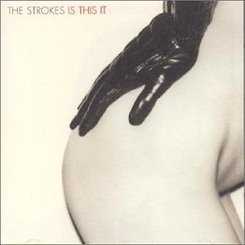 It is hard to believe it’s now over ten years since The Strokes dropped their landmark debut ‘Is This It?‘, in doing so re-igniting a music scene which had developed a curious obsession with, shudder, ‘nu-metal’ and, even worse, ‘pop punk’.
It is hard to believe it’s now over ten years since The Strokes dropped their landmark debut ‘Is This It?‘, in doing so re-igniting a music scene which had developed a curious obsession with, shudder, ‘nu-metal’ and, even worse, ‘pop punk’.
Expanding on the fantastic ‘Modern Age’ EP, the album’s lo-fi, garage rock sound felt new, felt different, and tracks like ‘Last Nite’ and ‘Hard To Explain’ reminded us all exactly how accessible rock music should sound. On the back of The Strokes’ vapour trails, people were talking of Corals rather than Ant Farms; yep, we’ve a lot to be thankful to them for. Today, The Strokes will swap Reading-roles with Pulp and, in both performance and crowd-size, give them a hell of a run for their money.
Always a more dynamic band on stage than on record, especially when Nick Valensi furiously explores the limits of his fret board when unleashed on lead duties, the New Yorkers continue to breathe new energy into ‘The Modern Age’, ‘Last Nite’ and ‘New York City Cops’, giving them a vibrant feel which belies age and familiarity. The four bandmates stand close, tightening the scope of a vast festival stage, zoning the focus to a point and giving the sense of an intimate display which works superbly.
With the best will in the world, it is still ‘Is This It’s presence which dominates the set. That’s not to say subsequent albums don’t have their moments, and certainly tracks such as ‘Reptilia’, ‘Losing Control’, ’Juicebox’ and ‘Under Cover Of Darkness’ comfortably stand alongside anything from the debut, but the setlist is also a reminder that plenty more have been long since discarded to the scrapheap, unlikely to see the light of day again.
The size and age of the crowd is an obvious sign of the high regard a generation of music fans hold The Strokes in, and with the band already looking to head back into the studio following this year’s patchy ’Angles’ LP, this powerful, career-spanning set leaves you willing them to now produce the second classic record they are so obviously capable of, one which will once and for all cement their position as the most important band of their time.

And so for Pulp who, from behind the shelter of a vast black veil, emerge to ‘Do You Remember The First Time?’ – fittingly one of the singles which first set them free from obscurity and on their way to dominance in the nineties as ‘His N Hers’ became one of the most acclaimed releases of 1994, losing out on that year’s Mercury Music Prize to M People – proof, if ever it’s needed, that critics can sometimes get it very, very wrong.
Always one of rock’s most enigmatic characters, it’s immediately apparent that frontman Jarvis Cocker has lost none of the trademark onstage appeal or individuality. Whether in addressing those on one of the site’s fairground rides who will have the unique experience of ‘throwing up during a Pulp concert’, or trotting out quotes of the day from the 1700s, or seeking assurances of dancing from the crowd when doing away with his jacket immediately prior to the rip-roaring ‘Disco 2000’, Cocker oozes personality and confidence, making a mockery of his lack of stage time over the last decade.
With the assurance of the frontman alongside such obvious favourites as ‘Babies’, ‘Something Changed’ and ‘Sorted For Es and Wizz’, it could be very easy to assume this to be an error-free, target-hitting festival set. However, considering this is a recently reformed band inviting us to join in on a celebration of their career, one or two gripes do start to emerge.
The set is heavily, close to being overly, reliant on ‘Different Class’, and oddly virtually entirely ignores the (to-date) last two studio albums ‘This Is Hardcore’ and ‘We Love Life’. No less than nine are taken from Different Class, leaving only room for ‘This Is Hardcore’s title-track and, from ‘We Love Life’, a sublime run-through of ‘Sunrise’ – as close as Pulp have ever dared to venture to stadium rock, pleasingly complimented here by the slide guitar of another of Sheffield’s favourite sons and one-time Pulp member, Mr. Richard Hawley.
The vice-like grip ’His N Hers’ and ‘Different Class’ hold over Pulp’s career is clear, but surely that clenched fist could have been loosened slightly so that in the place of, say, ’Pink Glove’, ’I Spy’, ’Razzmatazz’, ‘Bar Italia‘ and maybe even ‘F.E.E.L.I.N.G.C.A.L.L.E.D.L.O.V.E’, could have come a selection from the likes of ‘Glory Days’, ‘A Little Soul’, ‘TV Movie’, ‘Night That Minnie Timperley Died‘, ‘Weeds’ and ‘Bad Cover Version’ amongst others, all straining at the leash for a mention in the now crisp, chill late evening air of Bramham Park.
However, these are merely minor, perhaps personal quibbles which would only serve to debate the merits of a 9 or a 9.5, and which do nothing to distract from a true celebration of one of the UK’s finest products.
The fascination of a younger Jarvis Cocker and his razor-sharp tongue on the sleazier side of life is made abundantly clear; be it the tale of desire and promiscuousness told in ‘Pencil Skirt’ or the dirty sexuality of ‘This Is Hardcore’, all delivered by Cocker in a manner which leaves nothing to the imagination.
Predictably it’s set closer ‘Common People’ which really steals the show as Cocker firstly recounts its well-known origins, leading us back to his student days whilst also recalling the panic as he aimed to finish the song’s lyrics in time for its first outing some years later.
‘Common People’ scoffs at genre; unashamedly as much pop or disco as it is rock, one of the all time classic singles that will surely be sung at parties and in nightclubs forever. Tonight it perfectly brings the curtain down on a superb gig, on a superb festival, but hopefully, not on another chapter of Pulp’s superb career.
With it over, thoughts turn to a long-held wish being granted, but will tonight’s headline performance still be remembered and envied in sixteen years time, as Glastonbury ‘95 is now? Hard to say.
But just in case, for the record, for anyone who might be reading this in the year 2027, we stayed free from rain, the cold wind was awful and there was a worrying stench coming from a beer glass not far in front. But Pulp? Man they were bloody good.
(Dave Smith)

